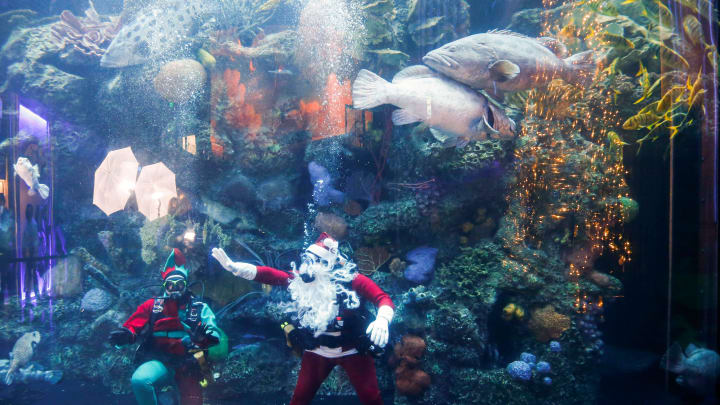Record Setting Water Temperatures Recorded at Great Barrier Reef

One of the most beautiful ecosystems in the world is the Great Barrier Reef in Australia. The largest of its kind in the world, it is approximately 344,400 square kilometers. More than 2,900 individual reefs make it up with islands stretching at least 2,300 kilometers.
However, it is in danger of being lost if something isn’t done to the global warming that has occurred. Record-setting temperatures are being recorded at the Earth’s core, which is leading to the water heating up as well.
Waters getting warmer and warmer hurts the survival rate of the reefs. Over the past decade, temperatures have gotten to a point that hasn’t been seen in over 400 years. Bleaching is a major issue that is destroying the reef.
“The world is losing one of its icons,” Benjamin Henley, an academic at the University of Melbourne and one of the study’s co-authors, told Reuters. “I find that to be an absolute tragedy. It’s hard to understand how that can happen on our watch in our lifetime. So it’s very, very sad.”
Research was recently done that compared the temperatures of the water recently compared to what it was from 1618 to 1995. Coral skeleton samples from the Coral Sea were used for the research. Data of sea surface temperature from 1900 through 2024 was also used by the journal, Nature.
Before 1900, temperatures recorded were pretty consistent. Since 1960, the water has consistently warmed, but most recently the rising temperatures have been doing damage to coral reefs. Between 2016 and 2024, some of the hottest recordings between January and March were recorded in 2016, 2017, 2020, 2022 and 2024.
With research going back hundreds of years, seeing such an incredible ecosystem being harmed so much is certainly concerning. Human-caused climate change is reportedly a major reason for the damage being done.
“The reef is in danger and if we don’t divert from our current course, our generation will likely witness the demise of one of those great natural wonders,” said Benjamin Henley, the study’s lead author and a lecturer of sustainable urban management at the University of Melbourne. “If you put all of the evidence together ... heat extremes are occurring too often for those corals to effectively adapt and evolve.”
A large portion of coral reefs around the world are in danger even if numbers are kept under the Paris Agreement numbers. If something isn’t done soon, the Great Barrier Reef as we know it will cease to exist.
